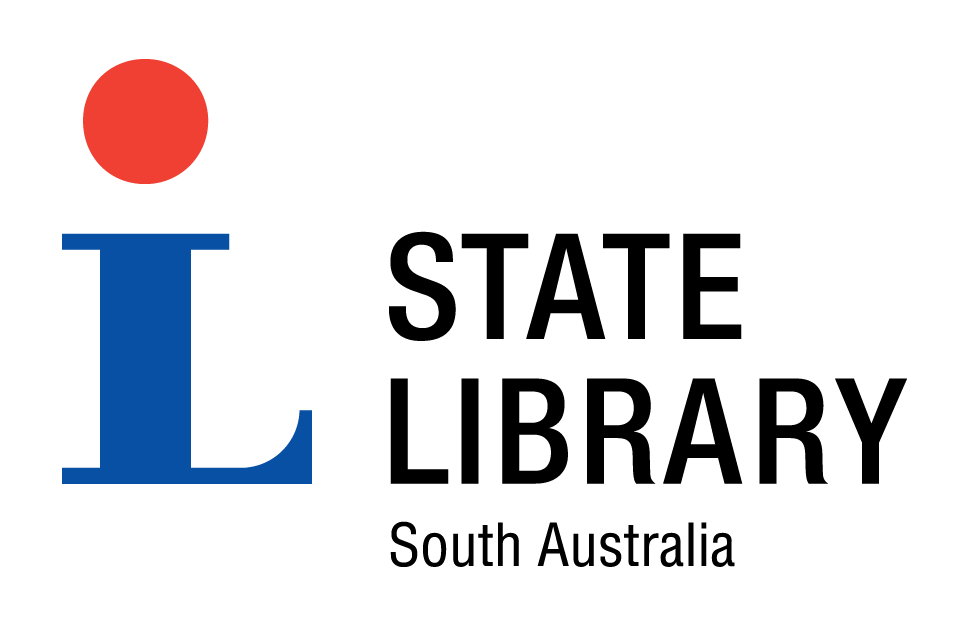
South Australian satirist |
||||
|---|---|---|---|---|
| Title : | South Australian satirist |

|
||
| Date of creation : | 1868 | |||
| Format : | Newspaper | |||
| Dimensions : | 560 x 430 mm | |||
| Catalogue record | ||||
| The State Library of South Australia is keen to find out more about SA Memory items. We encourage you to contact the Library if you have additional information about any of these items. | ||||
| Copyright : | Reproduction rights are owned by State Library of South Australia. This image may be printed or saved for research or study. Use for any other purpose requires permission from the State Library of South Australia. To request approval, complete the Permission to publish form. |
| Description : |
George Massey Allen was a controversial newspaper figure in the mid nineteenth century. He was a man of principle, which, together with his outspokenness, got him into major difficulties, and made his newspapers short-lived. Allen had been a journalist at the Advertiser, which he left in 1860 to found the first major country newspaper in South Australia, the Northern star, at Kapunda. Allen alienated many of his readers and found himself charged with libel, forced to close the newspaper and take up hotel-keeping. In 1867 he moved back to Adelaide and founded the weekly South Australian satirist. In the Satirist he attempted to compete with the two mighty dailies, the Register, and his former employer, the Advertiser. Although he successfully challenged these large newspapers on at least one issue, his unfortunate outspokenness, combined with his lack of resources, finally saw him in jail for libel and the newspaper closed down. The content of the newspaper largely consists of satire of public figures and the other city newspapers. The prospectus of the South Australian satirist reads: The lamentably abject condition of the daily Press of South Australia, its want of political principle, its hypocritical fear and timorousness, has forced upon the proprietors of the Satirist the palpable necessity of launching forth upon the unimpassioned waters of honesty, truth, and fearless independence, a journal whose aim shall be to guide, not truckle to, the public opinion of this colony. ... What, then, is the demand of the hour? To find and to sustain a fearless advocate of the people's rights and requirements, one who will dare to speak and teach the truth ... (27 July 1867, p. 2) Content The content of the short-lived newspaper was not far-ranging. Allen apparently wished to cover the same topics as the two city dailies, including parliamentary doings, literature, sport and the theatre. However, he was largely side-tracked into sarcasm about public figures. In September 1867, Allen challenged a parliamentary ruling that only reporters from daily newspapers were allowed into the reporters' gallery. He wrote to James Boucaut M.P., who introduced the topic into parliamentary debate and it was agreed that any members of the press could use the reporters' gallery. (28 September 1867, p. 2) Allen was scathing and bitingly satirical in the pages of the Satirist - nothing and no-one was safe from his attacks. Even the standard "Our summary for England" column was used to reprimand the "stereotyped blarney," of the other Adelaide newspapers. (27 July 1867, p. 3) Much of the newspaper's general content consisted of criticism of politicians. From December 1867, a series of "political sketches" lampooned various M.P.s - without giving their names. Many are clearly identifiable, so that the first sketch, 'the Ancient Mariner,' is almost certainly Captain John Hart. (7 December 1867, p. 2) During the Judge Boothby furore, Allen, predictably and perhaps admirably, was amongst the minority who publicly supported the judge against the public outcry against him. (10 August 1867, p. 2) The looming agricultural crisis was discussed at length. (28 December 1867, p. 2) Fears of famine due to poor wheat harvests saw the colonial parliament desperate for methods of getting more farming land opened up, which eventually gave rise to the Strangways Act allowing the sale of government land on a credit system. The Satirist believed that "excessive immigration" was the underlying cause of the problem. (18 January 1868, p. 2) The newspaper was published during the first visit to Australia of British royalty, with the touring of Queen Victoria's son, Prince Alfred. The people of Adelaide were in raptures at the arrival of the handsome young prince, and the Satirist naturally belittled the attitudes of the other newspapers, and of various public figures and groups. Sport The Satirist includes reports of local, interstate and overseas horse races. Country reporting Allen had maintained contacts from his country stint, and the Satirist published reports from country correspondents at Kapunda, as well as at Angaston, Nuriootpa, Gawler and Mount Pleasant. Angaston reports appeared most often, particularly in the first year of the newspaper's publication. The contributors clearly followed Allen's lead in their style of reporting, and the Rev. John Hannay was moved to write to the newspaper requesting that the Angaston correspondent not refer to his Baptist Church as the "dipping pool" and to cease making other sarcastic comments about himself and church activities. (21 September 1867, p. 3) A raft of accusations and counter-accusations between and about at least two Angaston 'reporters' followed, with some particularly nasty accusations being made about the storekeeper and reporter C.D. Lindo. (28 September 1867, p. 3) Religion In terms of religion, Allen was clearly a staunch supporter of the Church of England. Not only did he publish the derogartory reports of the Angaston correspondent about the Rev. J. Hannay and his Baptist flock, but wrote, "We have had occasion often to question Dissenters - both preachers and others - relative to the reasons of their separation from the Church of their fathers ..." (27 July 1867, p. 3) When Prince Alfred laid the foundation stone for the new Wesleyan college named after him, the Satirist reported scathingly of the, "sucking promoters of dissent." (9 November 1867, p. 2) Serials The back page of each issue included an installment of a serial story. From January 1868 the first installments of a locally based story, "The shoemaker of Adelaide" appears. Only a portion of the story by an anonymous writer was printed, as it was intended the story would be published in book form. The story describes how a practical joker named Tom Turner plays outrageous pranks on various people, in particular a deaf old shoemaker named Barber. Libel Like most newspaper editors Allen spent much of his ammunition on politicians and government officials. He described Patrick Coglin, the member for Light, as a "pugnacious little political Will o'the wisp." (7 September 1867, p. 2) A month later Allen was in trouble for publishing a letter by "Anti-Bosh" which referred to David Bower M.P.'s brother-in-law, Jacky White, a convicted thief who had drowned during the sinking of the convict ship Lady Denison. Libel was threatened, but Bower's brother wrote, "the only reason Mr D. Bower has for not taking action for libel is that you the Editor are so miserably poor that when libel was proved there would be no effects for damages." (9 November 1867, p. 3) The incident continued when the new Port Adelaide newspaper, the Galatea, publishing a hoax apology from Allen to Bower. (Galatea, 26 October 1867, p. 20) However, in the issue of 29 Februaury 1868, Allen under the title "Scoundrels unmasked" described in elaborate metaphor the plight of a bankrupt storekeeper named Thomas Wardle. Allen's description of the actions of the government receiver, John Cherry, and his claims of informants which turned out to be untrue, as well as his claim that Cherry had offered him a sizeable bribe, saw him sentenced in May to a year in jail with hard labour and a fine of one hundred pounds, bringing an end to the Satirist. (Advertiser 23 May 1868, p. 7) Allen's later life Allen was released after six months by special parliamentary intervention, his wife and six children having been left destitute without any income when he went to jail, and Judge Wearing having decided that he had perhaps too strongly interpretted the relevant legislation. The Judge however did not reneg on, "the great social advantage which has, I believe, resulted to the public by the cessation of so infamous a print as the Satirist." (South Australian Parliamentary Paper no. 145, 1868/69) After the failure of his second newspaper, Allen and his wife again took up hotelkeeping. After being released from jail, he took over the licence of the Alexandra Hotel in Rundle Street until 1871. |
| Subjects | |
| Related names : | Allen, George Massey |
| Place : | Adelaide (S. Aust.) |
| Region : | Adelaide city |


